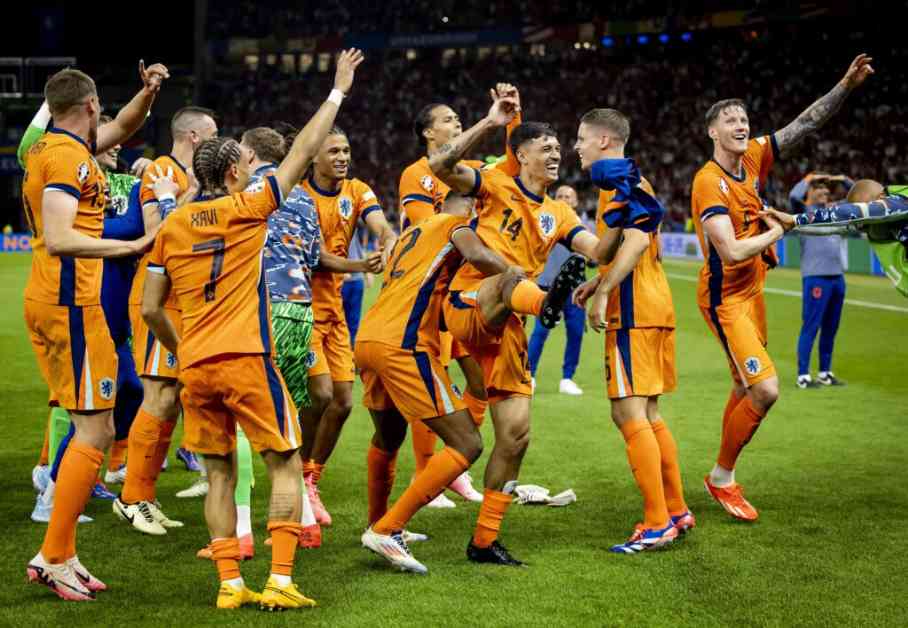Not only in the bars and squares was it a party last night after the victory over Turkey. The Dutch national team’s locker room was also buzzing. Dancing and jumping, the players sang along to Viva Hollandia after the match, creating joyful scenes.
In a video on X, you can see the players going wild to Wolter Kroes’ hit. Players like Denzel Dumfries, Xavi Simons, and Nathan Aké were seen jumping and singing shoulder to shoulder. Even Wout Weghorst was getting into it.
Frenkie de Jong also joined the celebration in the locker room. He congratulated his teammates one by one.
After the final whistle, celebrations erupted across the Netherlands. Cities like The Hague and Utrecht were packed with fans singing along to Viva Hollandia, just like the national team. Even at André Rieu’s concert, the thousands in attendance couldn’t contain themselves. Despite requests on the screens to be quiet, they couldn’t help but cheer. Rieu himself found the fun in it and eventually gave the audience the opportunity to cheer.
On Wednesday, the Dutch national team will play against England in the European Championship. Oranje goes into that match with a slightly positive record as they have won against the upcoming opponent seven times. On the other hand, England has defeated the Netherlands six times.
In addition to the victory celebrations, fans and players alike are looking forward to the upcoming match against England. The history between the two teams adds an extra layer of excitement to the upcoming game. The Dutch national team will be aiming to continue their winning streak against England, while the English side will be seeking to even the score.
The support and enthusiasm from fans both on the streets and in the locker room show the strong connection between the Dutch national team and the people of the Netherlands. The unity and joy shared during moments of victory like these highlight the power of sports to bring people together and create lasting memories.

